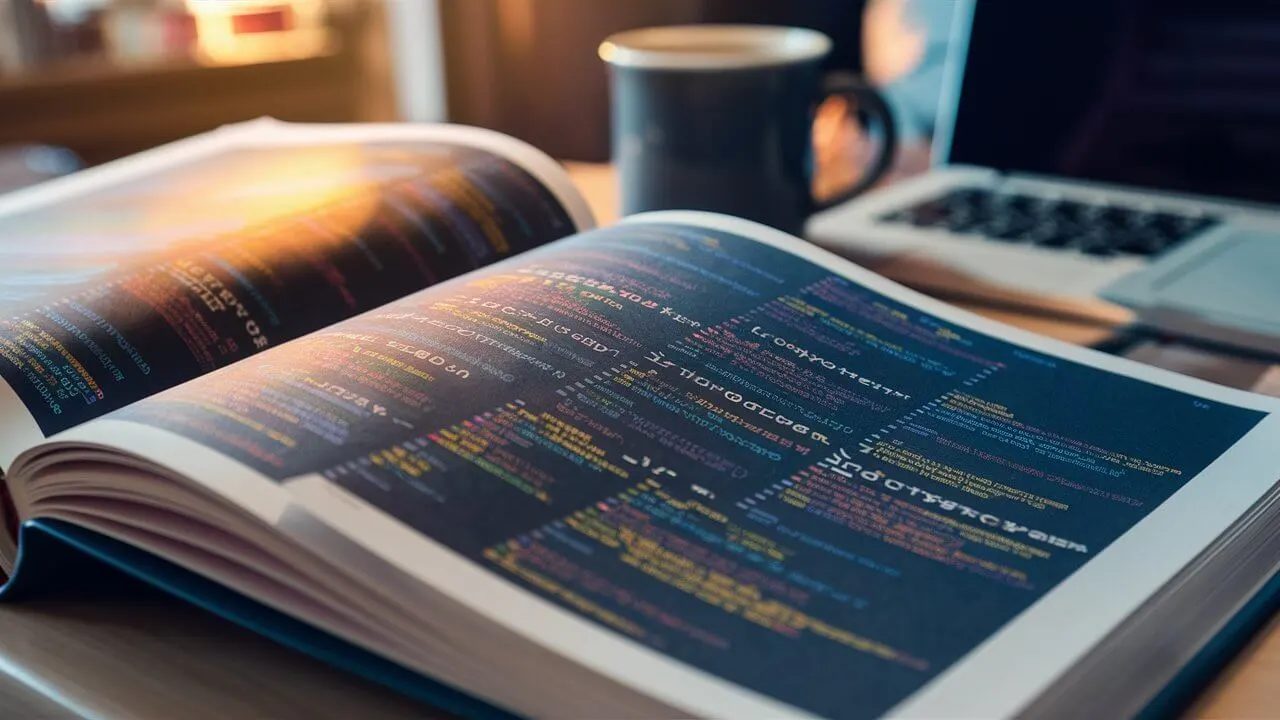Introduction
In an era where technology evolves at an unprecedented pace, staying updated with the latest trends, tools, and methodologies in software development is crucial. For software professionals, one of the best ways to enhance their skills and knowledge is through reading. “Software books” serve as a treasure trove of wisdom, enabling developers, engineers, and IT professionals to deepen their understanding, learn new techniques, and skip common pitfalls. This article aims to explore the world of software books, highlighting seminal works across various aspects of software development.
The Importance of Reading Software Books
- Continuous Learning and Skill Enhancement
Books are one of the most valuable resources for learning. Unlike online tutorials or brief articles, books offer a comprehensive and in-depth analysis of topics. They provide a structured form of learning that helps in building a strong foundational knowledge. - Insights from Industry Experts
Many software books are authored by seasoned professionals and pioneers in their respective fields. Reading their work grants readers access to a wealth of experience, proven best practices, and innovative solutions. - Staying Updated with Latest Technologies
The tech industry is known for its rapid advancement. Books authored by top experts in the field ensure that readers are abreast of the latest technologies, frameworks, and methodologies.
Categories of Software Books
1. Programming Languages
- “Python Crash Course” by Eric Matthes:
This beginner-friendly book offers a solid introduction to Python, one of the most popular programming languages today. It covers basics such as data types and loops, moving towards more complex projects. - “Effective Java” by Joshua Bloch:
A must-read for any Java developer, this book provides best practices and idioms to write efficient and maintainable Java code.
2. Software Engineering and Development Practices
- “Clean Code: A Handbook of Agile Software Craftsmanship” by Robert C. Martin:
A classic among software books, it emphasizes the principles of writing clean, readable, and maintainable code. - “The Pragmatic Programmer” by Andy Hunt and Dave Thomas:
This book provides a range of pragmatic advice to developers at all levels. It covers various aspects of software development, from coding practices to career advice.
3. Project Management and Methodologies
- “Scrum: The Art of Doing Twice the Work in Half the Time” by Jeff Sutherland:
This book is ideal for those interested in Agile methodologies and Scrum practices. It provides insights into efficient project management techniques that boost productivity. - “The Phoenix Project” by Gene Kim, Kevin Behr, and George Spafford:
A gripping novel that offers deep insights into DevOps and IT operations management, framed within a fictional narrative.
4. Software Design and Architecture
- “Design Patterns: Elements of Reusable Object-Oriented Software” by Erich Gamma, Richard Helm, Ralph Johnson, and John Vlissides:
Known as the “Gang of Four” book, it introduces 23 design patterns and their applications, an essential read for understanding object-oriented design. - “Domain-Driven Design: Tackling Complexity in the Heart of Software” by Eric Evans:
This book delves into strategic ways to simplify complex software design by aligning it closely with business needs and requirements.
5. Data Structures and Algorithms
- “Introduction to Algorithms” by Thomas H. Cormen, Charles E. Leiserson, Ronald L. Rivest, and Clifford Stein:
Often referred to as CLRS, this book provides comprehensive coverage of algorithms and data structures, making it a staple in computer science education. - “Grokking Algorithms” by Aditya Bhargava:
A visually engaging book that simplifies complex algorithms with illustrative examples and diagrams, perfect for beginners.
In an ever-evolving tech landscape, software books remain an invaluable resource for professionals aiming to stay ahead of the curve. They offer detailed insights, time-tested practices, and a deep understanding of various facets of software development. By investing time in reading these books, software professionals can significantly enhance their skills, making them not only more proficient coders but also well-rounded technologists.
Whether you are a novice programmer starting your journey or an experienced developer looking to broaden your expertise, there is a book out there for you. Dive into these literary treasures and unlock your potential to excel in the dynamic world of software development.
Essential Reads for Software Professionals
In the dynamic and ever-evolving field of software development, staying informed and continually honing your skills is crucial. Below is a curated list of essential books that every software professional should consider adding to their reading list. These books cover a wide range of topics including programming best practices, software design, algorithms, project management, and more.
1. Programming Languages
- “Clean Code: A Handbook of Agile Software Craftsmanship” by Robert C. Martin:
A must-read for any developer, this book emphasizes writing clean, readable, and maintainable code through practical advice and best practices. - “Effective Java” by Joshua Bloch:
Essential for Java developers, this book covers best practices for writing robust, maintainable, and efficient Java code. - “Python Crash Course” by Eric Matthes:
Ideal for beginners, this book offers a comprehensive introduction to Python, guiding readers through fundamental concepts and practical projects.
2. Software Engineering and Development Practices
- “The Pragmatic Programmer: Your Journey to Mastery” by Andy Hunt and Dave Thomas:
This book offers a range of pragmatic advice that is applicable to all phases of software development, helping developers to think critically about their work. - “Refactoring: Improving the Design of Existing Code” by Martin Fowler:
Focuses on improving the design of existing codebases, emphasizing the importance of refactoring for long-term code health.
3. Software Design and Architecture
- “Design Patterns: Elements of Reusable Object-Oriented Software” by Erich Gamma, Richard Helm, Ralph Johnson, and John Vlissides:
Often referred to as the “Gang of Four” book, it introduces design patterns fundamental to object-oriented design and software architecture. - “Domain-Driven Design: Tackling Complexity in the Heart of Software” by Eric Evans:
This book offers strategies for simplifying complex software design by closely aligning it with the core domain and business requirements.
4. Project Management and Methodologies
- “Scrum: The Art of Doing Twice the Work in Half the Time” by Jeff Sutherland:
Provides insights into the Agile framework of Scrum, offering practical advice on boosting productivity and managing projects efficiently. - “The Phoenix Project: A Novel About IT, DevOps, and Helping Your Business Win” by Gene Kim, Kevin Behr, and George Spafford:
A captivating narrative that delves into DevOps and IT operations, offering deep insights wrapped in a fictional storyline.
5. Data Structures and Algorithms
- “Introduction to Algorithms” by Thomas H. Cormen, Charles E. Leiserson, Ronald L. Rivest, and Clifford Stein:
Commonly known as CLRS, this book is a comprehensive guide to algorithms and data structures, making it fundamental for computer science education. - “Grokking Algorithms: An Illustrated Guide for Programmers and Other Curious People” by Aditya Bhargava:
Simplifies complex algorithms through visually engaging examples and diagrams, making it a great resource for beginners.
6. Software Testing and Quality Assurance
- “Continuous Delivery: Reliable Software Releases through Build, Test, and Deployment Automation” by Jez Humble and David Farley:
An essential read for understanding automated testing and deployment, focusing on principles and practices for ensuring reliable software releases. - “Explore It!: Reduce Risk and Increase Confidence with Exploratory Testing” by Elisabeth Hendrickson:
This book emphasizes the importance of exploratory testing in uncovering many issues that automated tests may miss.
7. Career Development and Soft Skills
- “Soft Skills: The Software Developer’s Life Manual” by John Sonmez:
Goes beyond technical skills and covers valuable advice on career development, personal branding, and work-life balance for software developers. - “Code: The Hidden Language of Computer Hardware and Software” by Charles Petzold:
A fascinating read that delves into the fundamentals of how computers work, bridging the gap between software development and computer engineering.
These books are designed to provide broad and deep perspectives across various aspects of software development. Reading and integrating the knowledge from these essential titles can significantly enhance the skills and understanding of software professionals at any stage of their career. Whether you are looking to improve your coding practices, understand complex algorithms, manage projects effectively, or boost your career development, there is a book in this list to guide you on your journey.
Mastering algorithms and data structures is essential for any software professional, as they form the backbone of efficient problem-solving and complex software development. Below are some top books that are widely regarded as the best resources for mastering this crucial area of computer science.
1. “Introduction to Algorithms” by Thomas H. Cormen, Charles E. Leiserson, Ronald L. Rivest, and Clifford Stein
Often abbreviated as CLRS, this book is considered the bible of algorithms. It covers a comprehensive range of topics in algorithms and data structures, with rigorous explanations and mathematical rigor.
2. “Algorithms” by Robert Sedgewick and Kevin Wayne
This book is highly recommended for its clear and concise explanations. It includes a wide variety of algorithms and data structures along with practical, real-world applications. The book is often paired with the authors’ online course for a complete learning experience.
3. “The Algorithm Design Manual” by Steven S. Skiena
Known for its practical approach, this book includes “war stories” that illustrate real-world applications of algorithms. It also provides numerous detailed case studies and a comprehensive catalog of algorithms.
4. “Grokking Algorithms: An Illustrated Guide for Programmers and Other Curious People” by Aditya Bhargava
This visually engaging book simplifies complex algorithms using intuitive explanations and step-by-step illustrations. It’s particularly great for beginners and visual learners.
5. “Data Structures and Algorithm Analysis in C++” by Mark Allen Weiss
This book is known for its clear and practical explanations. It’s especially recommended for C++ programmers, but the concepts apply broadly across many languages.
6. “Algorithms Unlocked” by Thomas H. Cormen
Aimed at a broader audience, this book provides a more accessible introduction to algorithms without delving too deeply into the mathematical aspects. It’s a good starting point for those new to the field.
7. “Cracking the Coding Interview: 189 Programming Questions and Solutions” by Gayle Laakmann McDowell
While primarily a preparation guide for technical job interviews, this book offers a wealth of information on algorithms and data structures through practical coding problems and solutions.
8. “Algorithmic Puzzles” by Anany Levitin and Maria Levitin
This book is filled with puzzles that challenge one’s understanding of algorithms and data structures. It’s an engaging way to deepen one’s grasp on the subject.
9. “Data Structures and Algorithms Made Easy” by Narasimha Karumanchi
Focused on simplifying complex concepts, this book is excellent for beginners. It covers a wide range of data structures and algorithms with clear explanations and example problems.
10. “A Common-Sense Guide to Data Structures and Algorithms: Level Up Your Core Programming Skills” by Jay Wengrow
This book is known for its practical and accessible approach, making complex concepts understandable for beginners. It also emphasizes the importance of data structures and algorithms in everyday programming tasks.
Each of these books offers a unique perspective on algorithms and data structures, catering to different learning styles and levels of expertise. Whether you are a novice or a seasoned programmer looking to deepen your understanding, these resources will guide you in mastering the fundamental concepts and practical applications of algorithms and data structures. Integrating the knowledge from these titles into your skill set will significantly enhance your problem-solving abilities and efficiency in software development.
Absolutely! Mastering data structures is vital for efficient problem-solving and software development. Here are some highly recommended books specifically focused on data structures:
1. “Data Structures and Algorithms Made Easy” by Narasimha Karumanchi
This book is highly regarded for its clear and straightforward approach. It covers a wide range of data structures and algorithms with detailed explanations and example problems, making it particularly useful for beginners and those preparing for technical interviews.
2. “Data Structures and Algorithm Analysis in C++” by Mark Allen Weiss
Ideal for C++ programmers, this book offers a comprehensive introduction to data structures with a focus on practical implementation. It provides clear explanations along with numerous examples and exercises.
3. “Data Structures and Algorithms in Java” by Robert Lafore
This book provides an accessible introduction to data structures and algorithms using Java. It includes detailed explanations, sample code, and visual aids to help readers understand complex concepts.
4. “Algorithms, Part I and II” by Robert Sedgewick and Kevin Wayne
Although not exclusively about data structures, these books provide a strong foundation in both algorithms and data structures. The authors’ clear explanations and practical applications make these books invaluable resources.
5. “Data Structures and Algorithms in Python” by Michael T. Goodrich, Roberto Tamassia, and Michael H. Goldwasser
For Python developers, this book offers a comprehensive guide to data structures and algorithms. It covers the standard data structures and algorithms, with a focus on Python implementations and problem-solving techniques.
6. “A Common-Sense Guide to Data Structures and Algorithms: Level Up Your Core Programming Skills” by Jay Wengrow
This book is particularly well-suited for beginners. It explains data structures and algorithms in a straightforward and accessible manner, emphasizing practical applications and everyday programming tasks.
7. “Essential Algorithms: A Practical Approach to Computer Algorithms” by Rod Stephens
This book provides a practical introduction to both data structures and algorithms, with a focus on problem-solving. It includes clear explanations, code examples, and real-world applications.
8. “Data Structures Using C” by Reema Thareja
Targeted at C programmers, this book offers a thorough introduction to data structures using C. It covers basic to advanced data structures with detailed explanations and numerous programming examples.
9. “Data Structures and Algorithms: A First Course” by Iain T. Adamson
This book is suitable for beginners and intermediate learners, offering a comprehensive guide to fundamental data structures and algorithms. It emphasizes understanding the underlying concepts and their applications.
10. “Python Data Structures and Algorithms” by Benjamin Baka
This book focuses on Python implementations of essential data structures and algorithms. It provides a hands-on approach with plenty of examples and practical applications, making it ideal for Python developers.
Conclusion
These books offer a wealth of knowledge on data structures, catering to different programming languages and levels of expertise. Whether you are a beginner looking to build a strong foundation or an advanced programmer aiming to refine your skills, these resources will provide the insights and understanding needed to leverage data structures effectively in software development.



